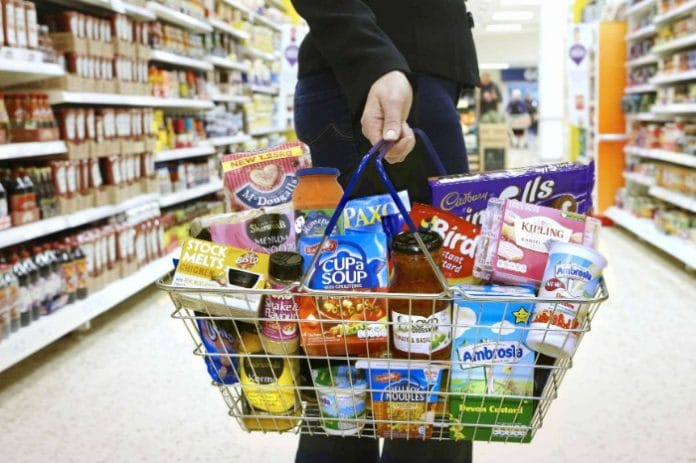// 15 million more shoppers visited supermarkets in the past week
// Customers have been “accidentally” stockpiling amid coronavirus fears
// Grocers took 51% of all retail sales
New research has found that an additional 15 million visits have been made to supermarkets as customers continued to stockpile amid the Covid-19 pandemic.
In the week ending March 17, 15 million more customers shopped at grocers across the UK, with the average spend per supermarket trip increasing by 16 per cent to £22.13, compared to the same week a month ago, according to Kantar Worldpanel.
The coronavirus outbreak has resulted in more customers than usual scurrying to supermarkets in a bid to stockpile staple products, ranging from baked beans to toilet roll.
READ MORE:
- Government orders all non-essential shops to close during coronavirus crisis
- Footfall plummets up to 63% in wake of Covid-19 crisis
- Coronavirus: Morrisons to install checkout screens to protect staff
Kantar said the minority of people were “accidentally” stockpiling, as the pandemic continues to prompt fear.
As consumers reallocated spend to groceries, supermarkets took 51 per cent of all retail sales, an increase of seven percentage points on mid-February.
“Most of us have seen images circulating online of people bulk buying products like toilet rolls and pasta, but our data gives us a different, if counterintuitive, diagnosis of what’s happening,” Kantar head of retail insight Fraser McKevitt said.
“Ultimately we need to look at the empirical evidence and it tells us that temporary shortages are being caused by people adding just a few extra items and shopping more often – behaviour that consumers wouldn’t necessarily think of as stockpiling.
“People will also be eating in more as a result of social distancing and increased working from home.
“Consumers spend more than £4 billion each month on food and drink out of the home, a significant proportion of which will now be channelled through the supermarkets.
“It’s not just how much people are buying but what. We’re seeing customers shop beyond their normal, regular product choice, putting pressure on supplies of items that aren’t usually bought as often.
“Purchasing typically made over a couple of weeks or longer is being concentrated into a few days.
“Retailers have adapted to make sure everyone can access the products they need, with many restricting the number of any one good each customer can buy.
“However, the cumulative impact of a little extra, a little bit more often means these measures may have limited effect in the short term.”
Consequently, many supermarkets have had to enforce rationing, with likes of Tesco and Sainsbury’s now selling two of the same products per person.
On Monday, Springboard found that footfall levels in the UK had dropped by 21.7 per cent last week, and by 28 per cent year-on-year.
High streets were most affected, with footfall plunging 31 per cent on the previous week and 41 per cent year-on–year, while shopping centre footfall fell 25.4 per cent year-on-year.
While supermarkets – and pharmacies – remain open for necessity, all shops selling “non-essential” goods have been ordered to close after Prime Minister Boris Johnson announced dramatic steps to combat the spread of Covid-19 on Monday evening.
Click here to sign up to Retail Gazette’s free daily email newsletter


















